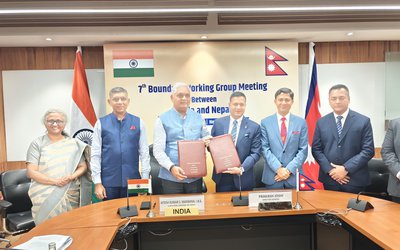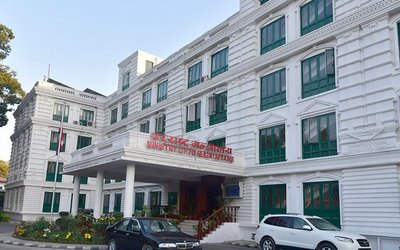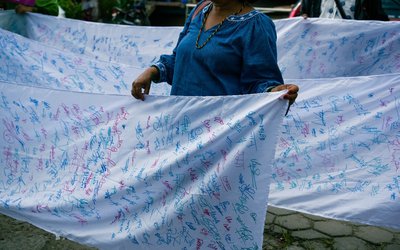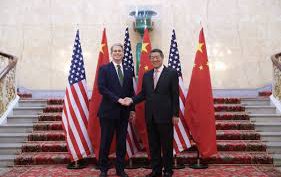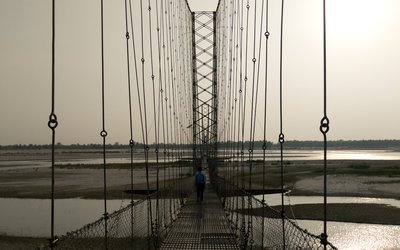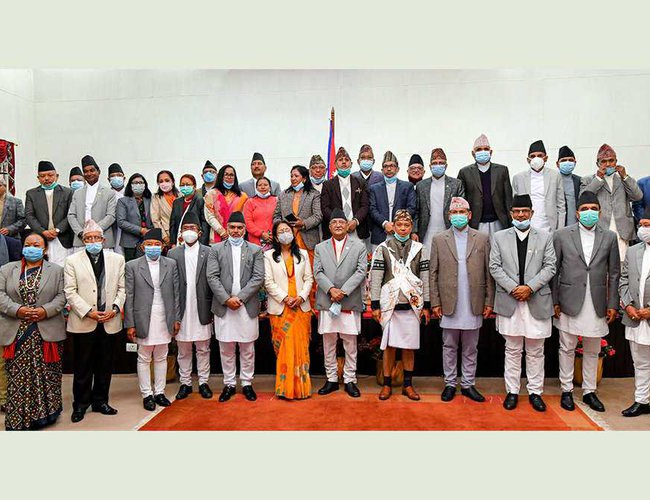
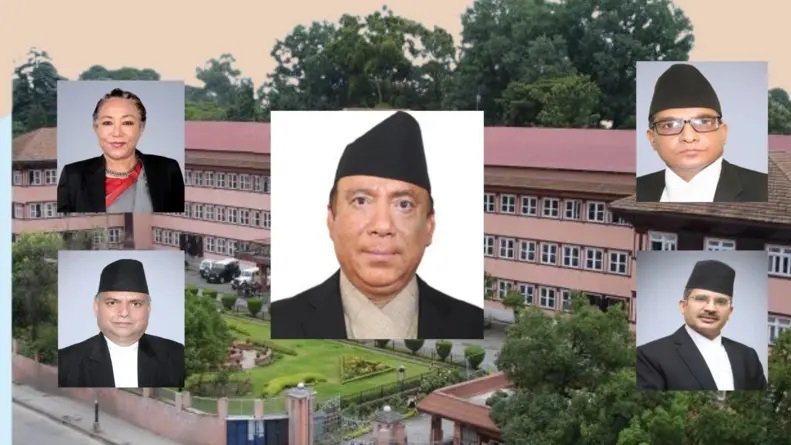
Supreme Court upholds appointment of 52 disputed officials The Supreme Court has upheld the appointment of 52 officials who were controversially appointed to constitutional bodies.
The recently convened Constitutional Bench dismissed the writ petition seeking to quash the appointments. With the dismissal of the writ, the appointments of the officials have been recognized after four and a half years.
The five judges of the Constitutional Bench delivered the verdict after the hearing began on Thursday.
A constitutional bench comprising Chief Justice Prakash Man Singh Raut, senior-most justices Sapna Pradhan Malla, Manoj Kumar Sharma, Nahakul Subedi, and Kumar Chudal was formed to hear the writ petition.
According to sources, there was a minority and a majority in the order. Three judges voted in favor of dismissing the writ, while two voted to issue it.
Justices Sapana Pradhan Malla, Kumar Chudal and Manoj Sharma have given their opinions in favor of dismissing the writ. Chief Justice Prakash Man Singh Raut and Nahakul Subedi have given their opinions in favor of issuing the writ. The directive orders have been issued by the Constitutional Bench.
Four and a half years ago, the then Prime Minister KP Sharma Oli amended the Constitutional Council Act through an ordinance and appointed 52 office bearers to the constitutional body twice.
The Supreme Court began hearing 16 writ petitions filed claiming that the appointments were unconstitutional on Magh 30. The constitutional bench, which had given the hearing to be completed in the first week of Jestha and allowed submission of argument notes by 16, had set the date for pronouncing the decision on Jestha 28.
The then Prime Minister Oli appointed the office bearers in Mangsir 2077 and Jestha 2078. The recommendation was made even when only Chief Justice Cholendra Shumsher Jabra and National Assembly Speaker Ganesh Prasad Timilsina were present in the then Constitutional Council led by Oli.
Although Speaker Agni Prasad Sapkota and opposition leader Sher Bahadur Deuba did not attend the meeting, Oli had given positions to his close associates, contrary to constitutional and democratic values.
- Nepal Investment Mega Bank Limited Launches 'Instant EMI' Facility For the First Time in Nepal
- Jul 30, 2025
- GIZ 50 Years Partnership: Energizing Nepal’s Energy Sector
- Jul 30, 2025
- Prime Minister Inaugurates Rani Jamara Kulariya Irrigation Three Years After Completion
- Jul 30, 2025
- Nepal-India Border Working Group Meeting Agree On Inspection And Maintenance e Work Of Pillar
- Jul 30, 2025
- Weather Forecast: Generally Cloudy Across The Country Possibility Of Moderate Rain In Hilly Regions Inclding Sudurpaschim Province
- Jul 30, 2025

